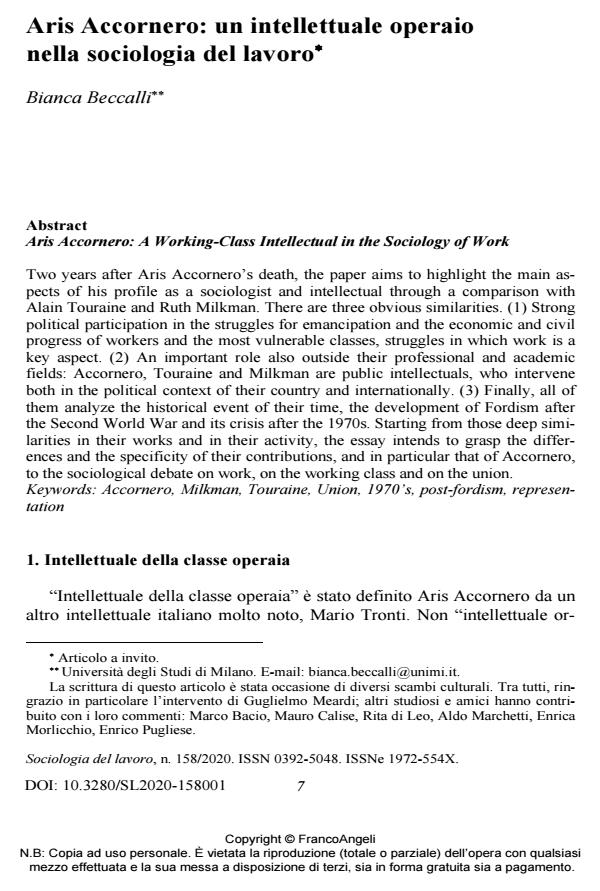Aris Accornero: A Working-Class Intellectual in the Sociology of Work
Journal title SOCIOLOGIA DEL LAVORO
Author/s Bianca Beccalli
Publishing Year 2020 Issue 2020/158
Language Italian Pages 14 P. 7-20 File size 210 KB
DOI 10.3280/SL2020-158001
DOI is like a bar code for intellectual property: to have more infomation
click here
Below, you can see the article first page
If you want to buy this article in PDF format, you can do it, following the instructions to buy download credits

FrancoAngeli is member of Publishers International Linking Association, Inc (PILA), a not-for-profit association which run the CrossRef service enabling links to and from online scholarly content.
Two years after Aris Accornero’s death, the paper aims to highlight the main as-pects of his profile as a sociologist and intellectual through a comparison with Alain Touraine and Ruth Milkman. There are three obvious similarities. (1) Strong political participation in the struggles for emancipation and the economic and civil progress of workers and the most vulnerable classes, struggles in which work is a key aspect. (2) An important role also outside their professional and academic fields: Accornero, Touraine and Milkman are public intellectuals, who intervene both in the political context of their country and internationally. (3) Finally, all of them analyze the historical event of their time, the development of Fordism after the Second World War and its crisis after the 1970s. Starting from those deep simi-larities in their works and in their activity, the essay intends to grasp the differences and the specificity of their contributions, and in particular that of Accornero, to the sociological debate on work, on the working class and on the union.
Keywords: Accornero, Milkman, Touraine, Union, 1970’s, post-fordism, represen-tation
Bianca Beccalli, Aris Accornero: un intellettuale operaio nella sociologia del lavoro in "SOCIOLOGIA DEL LAVORO " 158/2020, pp 7-20, DOI: 10.3280/SL2020-158001